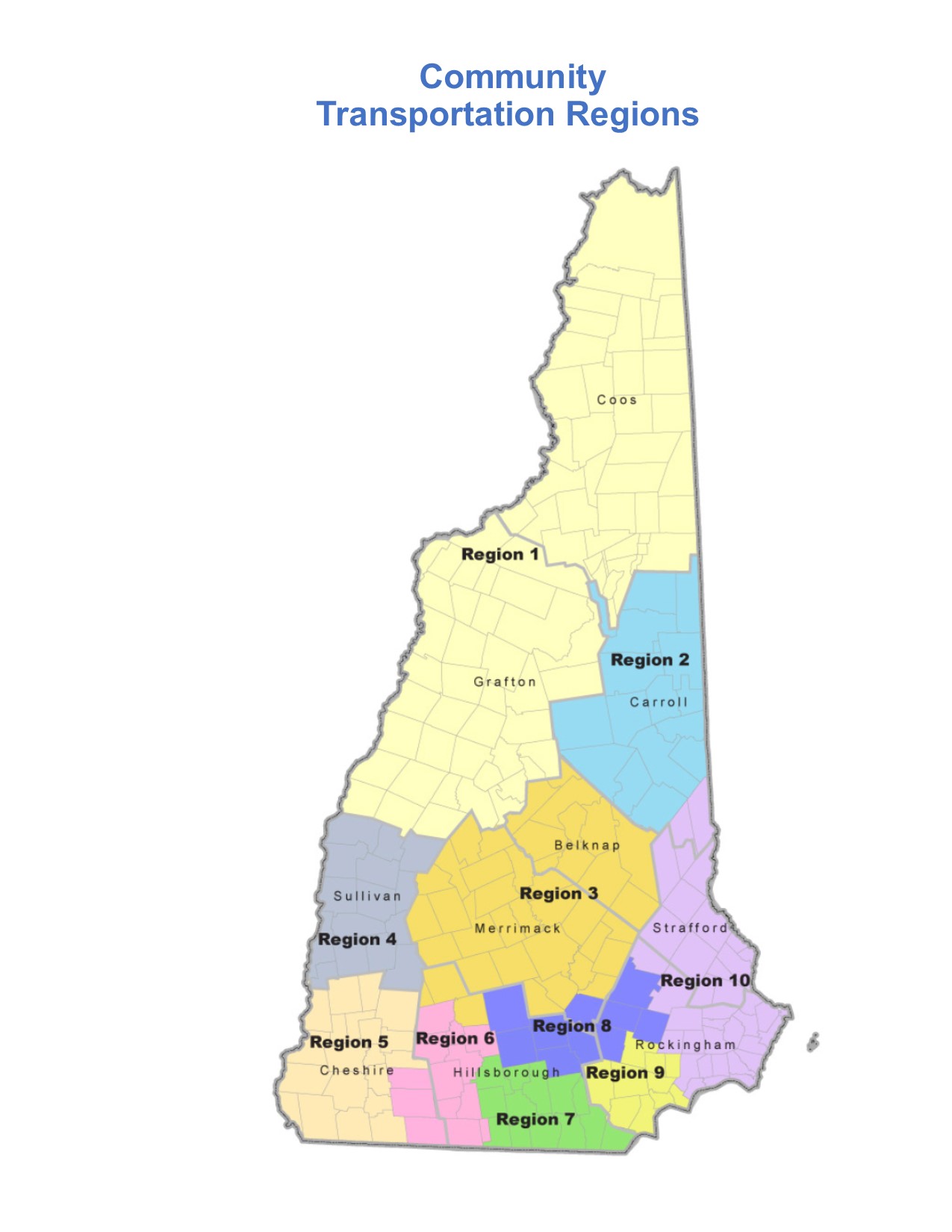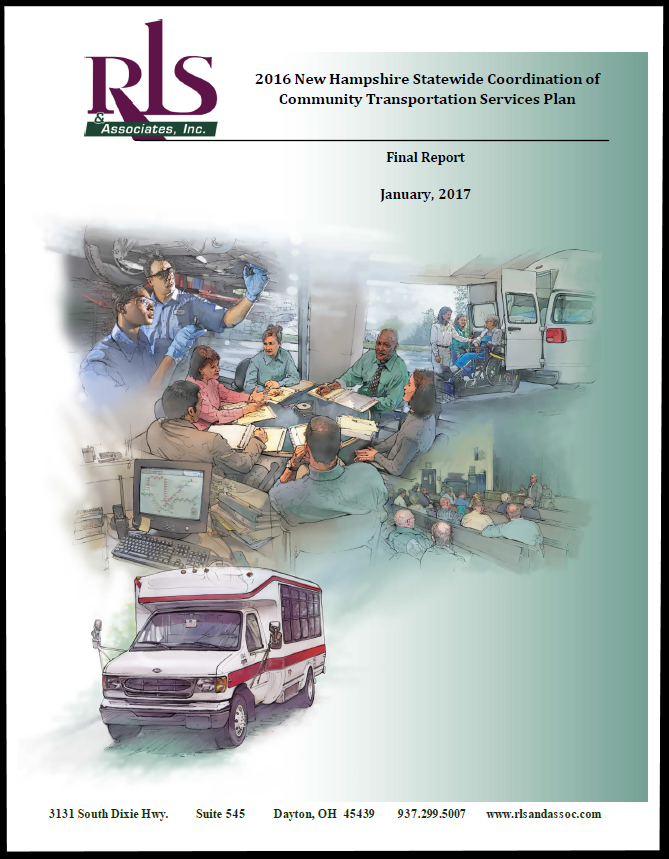WHAT'S NEW? NH forms a Mobility Management Network to improve transportation options for citizens
The Mobility Management Network "aims to do no less than
transform the transportation system in New Hampshire
over the next two years, building networks,
collaboration, and partnerships that create better
outcomes for all people in the state."
State Coordinating Council
New Hampshire transportation and human services agencies have the goal of reducing duplication and increasing the availability of public transportation service, while making the best use of resources.
For many years, New Hampshire transportation and human services agencies have been discussing ways to coordinate the various community transportation services offered in the state. The goal has been to reduce duplication, increase the availability of service, and make scarce resources go further as the need for transportation increases with an aging and growing population.
The most recent effort was the Governor's Task Force on Community Transportation, which issued a detailed report recommending three components: a state-level body to oversee the development of a coordinated system, regional councils to design and implement coordinated services around the state, and regional transportation coordinators, which would arrange trips through a "brokerage" system of varied funding sources and a network of providers.
In 2007, the legislature took the first step toward this implementing this plan with establishment of the State Coordinating Council (SCC) for Community Transportation. Represented on the Council are the state departments of Transportation, Health and Human Services, and Education and the Governor’s Commission on Disability; transit providers, the UNH Institute on Disability, AARP, Easter Seals, the community action agencies, regional planning commissions, the Coalition of Aging Services, the Endowment for Health, and Granite State Independent Living.
The SCC, led by chair, by Fred Roberge (Easter Seals), is developing state-level coordination systems, including coordination regions and information technologies, and working with regional groups to establish regional councils. It will be responsible to the Governor and Legislature for implementing coordination.
The Governor's Task Force on Community Transportation recommend three components to achieve these goals:
- a state council to oversee the development of a coordinated system (SCC);
- regional councils (RCCs) based in the Regional Planning Commissions to plan and monitor services; and
- regional transportation coordinators (RTCs), to arrange trips through a "brokerage" system.
This cost-effective and efficient solution deploys varied funding sources and a network of providers including volunteer drivers to deliver service.

